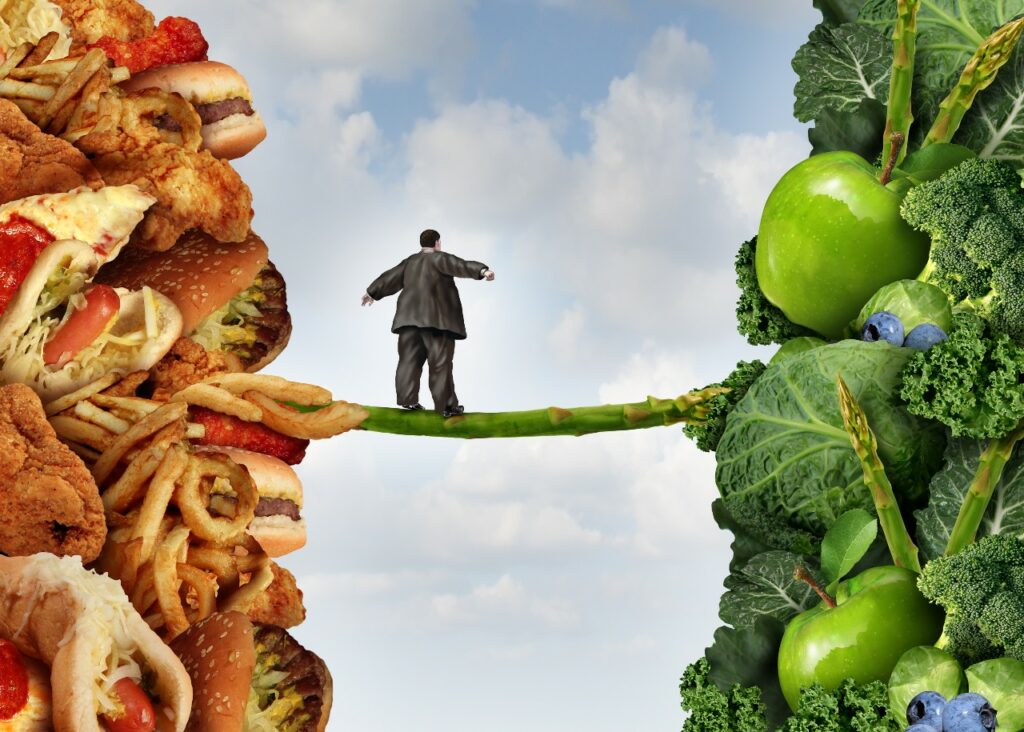This post originally appeared at https://www.badgerinstitute.org/snap-is-a-larded-sugary-mess/
Unfortunately, Congress appears too unhealthy to fix it
The subject line of the email from the disabled North Woods doctor receiving some temporary government assistance read “Food Stamps,” which is actually a misnomer.
The federal program we used to call “food stamps” is completely electronic now, and the name was officially changed to the “Supplemental Nutrition Assistance Program” — or SNAP — in 2008 during reauthorization of the federal farm bill.
SNAP is a misnomer too, though — as the North Woods doc found out.

“Our family recently started receiving SNAP benefits,” wrote the doctor, whom I also talked to briefly on the phone. “I had read the information prior to applying about how SNAP helped families to get ‘healthy’ foods. What a joke. I assumed that I would be able to get fruits, vegetables, whole grains, dairy — actually healthy foods — similar to what is allowed on WIC,” the Special Supplemental Nutrition Program for Women, Infants and Children.
“Sure, I can get those, but I can also get Monster, Diet Pepsi, Hershey’s Miniatures, Doritos and Oreos.”
Many SNAP recipients avoid the healthy stuff and spend a large percentage of their benefits on sugary beverages and prepared desserts, according to Angela Rachidi, a senior fellow at the American Enterprise Institute and visiting fellow at the Badger Institute. She told the House Committee on Agriculture in June that it should, among other things, establish nutrition standards and ban the purchase of sugary drinks with SNAP benefits.
This stuff isn’t cheap. As recently as 2000, the annual outlay for SNAP was $23 billion. In 2022, the federal government funneled almost five times that, $110 billion.
The ag committee has oversight because SNAP funding is authorized every five years through the farm bill — another big problem. SNAP legislation is part of that enormous bill because it could never pass through Congress by itself. It’s too bloated, too ineffective, too larded up. Criticism is muted because everyone supports something else that’s tied to it.
Maybe that’s part of the reason that the doctor, when she contacted the politicians, got the impression no one was “particularly interested or upset.”
I left a message with the office of Republican U.S. Rep. Tom Tiffany, who represents most of northern Wisconsin, but didn’t hear back.
U.S. Rep. Derrick Van Orden, who represents much of the southwestern corner of our state, is on the House Agriculture Committee and on the record in opposition to Rachidi’s recommendations. Van Orden, a Republican, said he grew up in abject rural poverty, was raised by a single mother and was on food stamps.
“I had subsidized lunches,” he said at the committee hearing. “I had government cheese. I was being shot at, literally, as a Navy Seal in combat, and my wife and I used WIC to help feed our children.”
“Miss Rachidi, I’m not sure that I agree with you dictating what people should be eating. I just don’t. I think it’s inappropriate. We’re trying to get whole food or whole milk back into schools, and the reason it’s not there is because it was removed by a previous administration. So I’m not a fan of the government dictating … to people what they can and cannot eat.”
The doctor and the AEI fellow both disagree.
“If the government is going to forcefully take money from my friends and neighbors in taxes, I shouldn’t be able to turn around and spend that money on Mountain Dew and Ben and Jerry’s,” wrote the doctor, who later reiterated on the phone that she just doesn’t see the SNAP benefit as her own money.
Man, I wish there were more North Woods doctors around. When you take government money, no matter how much you need it, you should expect to lose freedom — and, if you’re not careful, maybe your health as well.
Sixty to 70 percent of SNAP recipients between the ages of 50 and 64 have had a diet-related disease such as diabetes or heart disease or hypertension, according to research Rachidi conducted along with an AEI colleague, Thomas O’Rourke — higher numbers than are found among similarly aged non-recipients.
“Although obesity plagues U.S. adults of all socioeconomic statuses, SNAP adults were (also) much more likely to be obese than were low-income non-recipients and high-income non-recipients, suggesting again there is something uniquely substandard about the health status of adults receiving SNAP,” the AEI paper concluded.
The problem extends way beyond high blood pressure or clogged arteries. Only a quarter of nondisabled adults aged 18-49 without dependents work while receiving SNAP (a subject for another day). Poor health is one of the reasons. SNAP recipients say so themselves.
SNAP is a misnomer that’s misplaced among other farm bill issues and amounts to a missed opportunity to improve the health of low-income Americans and promote work.
Congress could fix it. But first they have to let go of the Doritos and Mountain Dew.
Fat chance.
Mike Nichols is the President of the Badger Institute. Permission to reprint is granted as long as the author and Badger Institute are properly cited.
The post SNAP is a larded, sugary mess appeared first on Badger Institute.